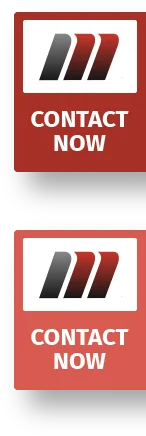Uber Eats, GrubHub, Door Dash, Amazon – Who pays when you are in a car accident with a rideshare vehicle or delivery vehicle?
Jan 12, 2021
Food delivery service is anticipated to grow by twelve percent per year through 2023. Furthermore, the impact of Covid-19 has caused for these services to become even more popular and in demand. With more food deliveries being made, the chances of being involved in a car accident with Door Dash, Uber Eats, Grub Hub, or other food delivery services has become much higher than in previous years.
If you were involved in a car accident with a rideshare vehicle, you likely have several questions: Who is liable in a rideshare accident? What happens if you get into a car accident with a delivery driver? Who pays when you are in a car accident with a rideshare vehicle? The answer to the last question, however, may not be so straight forward. While every case is different, here are few general tips for getting you started on the right path:
Determine whether the at-fault driver is an employee or an independent contractor of the food delivery company or rideshare company
The general rule is that an individual is an employee if the payer has the right to control the work, directs how the work will be performed, or controls what type of work that will be performed. Contrarily, the individual is likely an independent contractor if the payer has the right to control only the result of the work, not how the work will be performed. To be sure, one should seek advice from an experienced Columbus personal injury attorney.
In most situations, individuals working for restaurants will be found to be employees while individuals driving for food delivery companies, such as Amazon, Uber Eats, Grub Hub, or Door Dash, will be found to be independent contractors. In addition, some pizza delivery drivers have also been found to be independent contractors.
If the driver is an employee, the business will often be liable for the actions of its employees under the legal doctrine of respondeat superior, if such acts occurred within the ordinary course and scope of the employment with the company.
Contrarily, if the at-fault driver is an independent contractor, the business will likely not be liable. However, even if the driver is an independent contractor, applicable insurance coverage may still available and should be investigated. If you are unsure whether the driver was an independent contractor or employee, it is encouraged that you seek the advice of a Columbus car accident attorney.
Determine whether the rideshare company or food delivery service has applicable liability insurance coverage
Often, even though its drivers may be independent contractors, the food delivery companies may still offer applicable insurance coverages for when car accidents arise out of certain circumstances. However, while many of these companies do offer insurance coverage, each company defines the circumstances differently for when the liability coverage applies. For example, Door Dash offers one million ($1,000,000.00) in liability coverage, but it only applies when its drivers have caused the car wreck while making a “delivery.” Door Dash defines a “delivery” as occurring when the driver already has obtained the food and is in the process of driving the food to the individual who ordered it. Unfortunately, if the Door Dash driver was in the process of picking up the food when the car accident occurred, but had not yet obtained it, Door Dash coverage likely may not apply. Because each company defines how coverage applies differently, it is encouraged that you consult with an experience Columbus car accident attorney who can obtain and analyze the language of the insurance policy to determine whether you can collect against the policy.
Determine whether the driver’s personal liability insurance coverage applies
Regardless of whether there is applicable coverage through the food delivery services, one should also determine whether the driver’s personal liability insurance coverage applies. Under most personal insurance policies, however, the crucial analysis will focus on whether language exists to endorse or exclude coverage for such incidents. For example, most personal auto insurance policies include a “business use” exclusion, which excludes coverage for any personal injuries or other damages arising out of the use of a personal vehicle for a business purpose. On the other hand, some insurance policies now offer endorsements for coverage for car accidents arising out of food deliveries or rideshares.
Determine whether you have applicable “underinsured” or “uninsured” insurance coverage through your own insurance coverage
In some situations, the at-fault party may not have any applicable insurance coverage. Using the same example above, if the at-fault driver was working for Door Dash and was on his way to pick up food and caused a car accident, and his own personal insurance policy excluded coverage if he was using his personal vehicle for a business use, there may be a gap in coverage and the driver may be “uninsured.” In such situations, depending on what type of coverage you carry through your own insurance, you may be able to make a legal recovery through your own coverage by making a “uninsured motorists” claim (“UM”). For more on underinsured motorists claims and uninsured motorists claims, click here.
Contact Brian G. Miller Co., LLC to discuss your legal options after being injured in a car accident with a rideshare driver or food delivery driver
If you have been injured in a car accident with a driver of a ridesharing company or food delivery service, our dedicated Columbus rideshare accident attorneys can assist you. To schedule your free consultation, please call Brian G. Miller Co., LLC at (614)-221-4035 or by contacting us.


